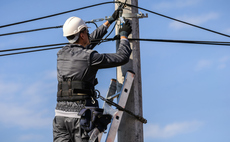120 sites covered by initial rollout in £3.2m deal
Southend is to become the latest location to be added to CityFibre's high-speed network, after a £3.2m deal was signed by the firm with Southend-on-Sea Borough Council. The 50km network will cov...
To continue reading this article...
Join Computing
- Unlimited access to real-time news, analysis and opinion from the technology industry
- Receive important and breaking news in our daily newsletter
- Be the first to hear about our events and awards programmes
- Join live member only interviews with IT leaders at the ‘IT Lounge’; your chance to ask your burning tech questions and have them answered
- Access to the Computing Delta hub providing market intelligence and research
- Receive our members-only newsletter with exclusive opinion pieces from senior IT Leaders





















